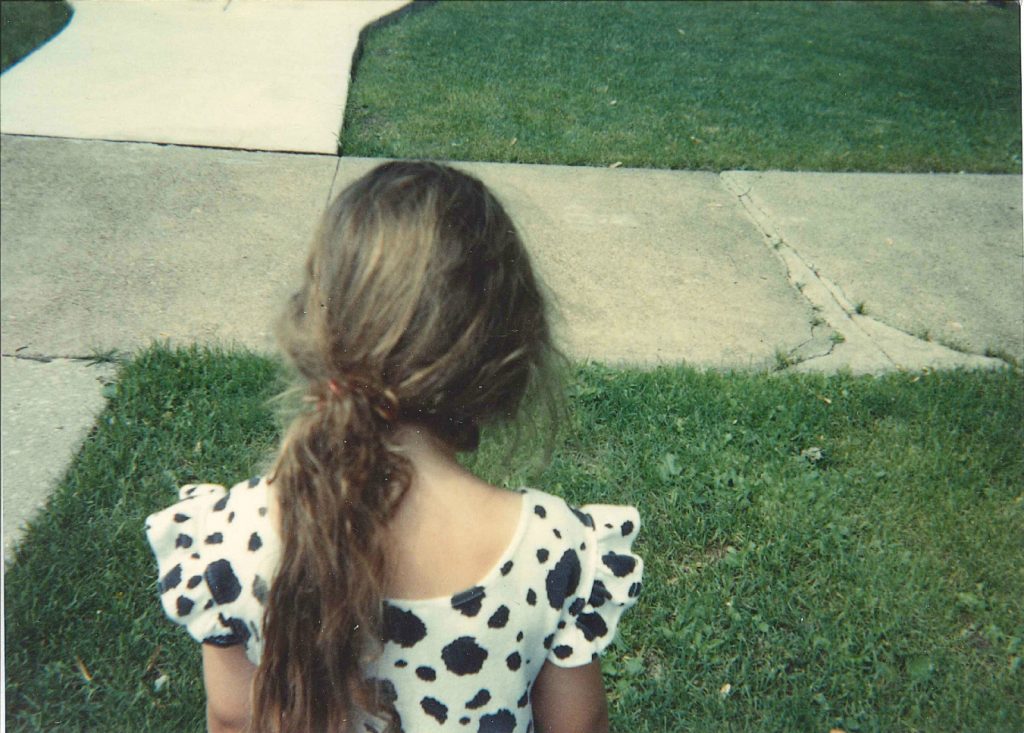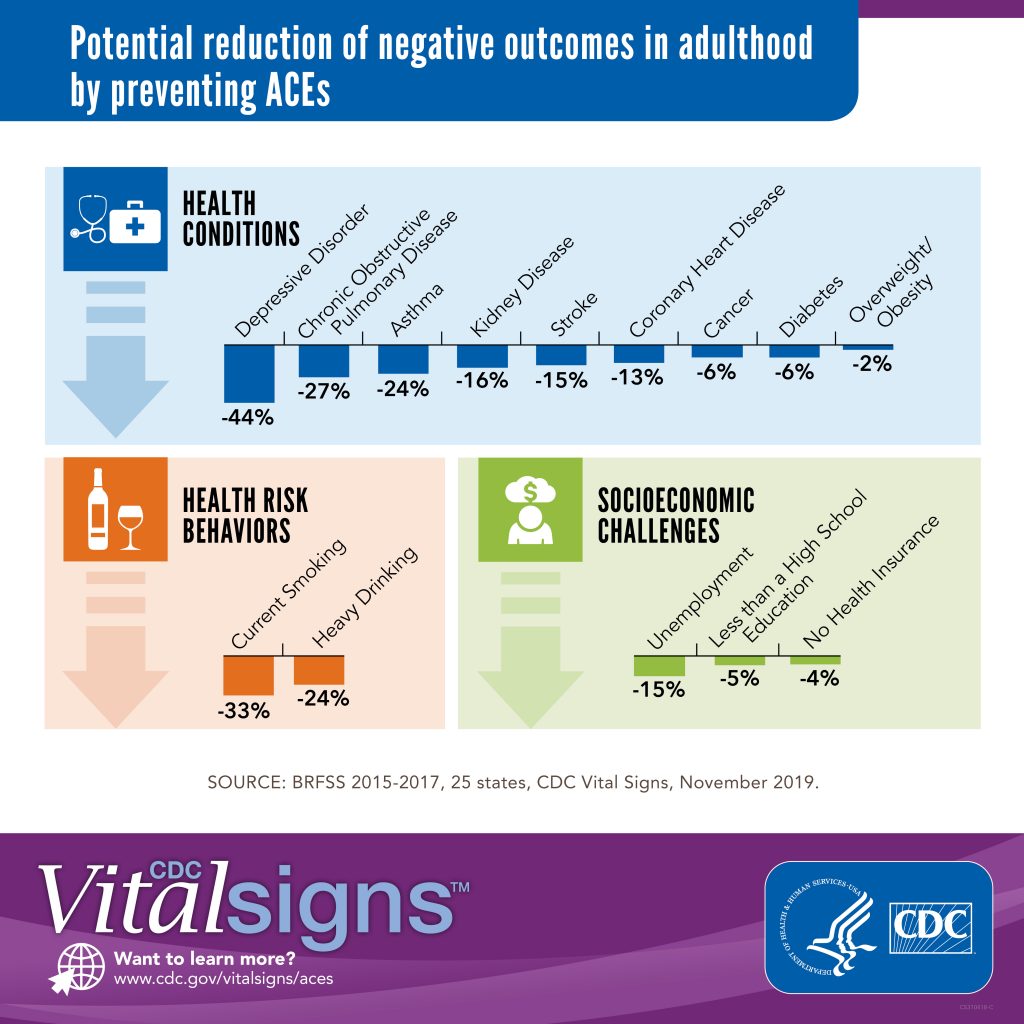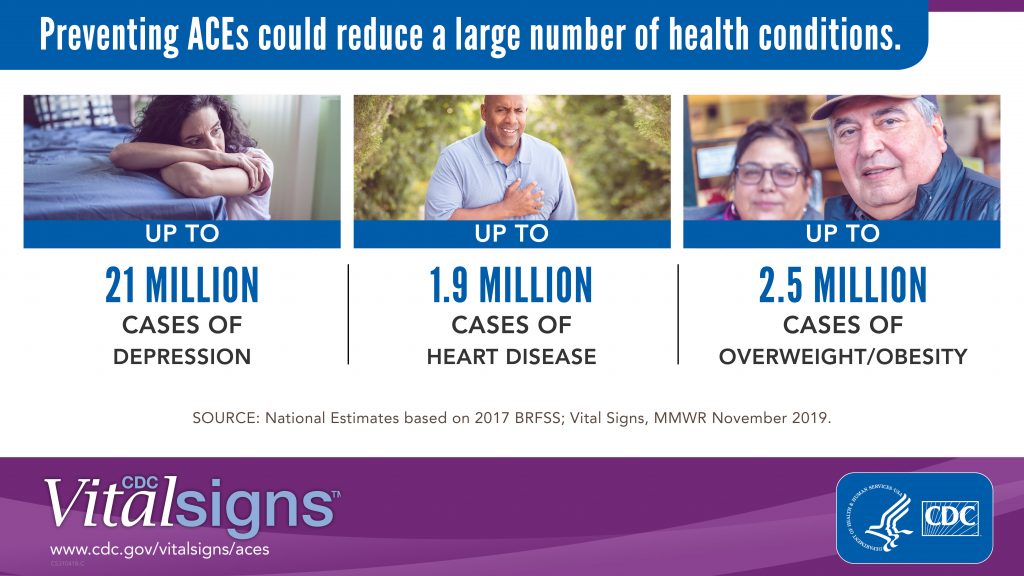This post is made possible with support from the American Academy of Pediatrics through a cooperative agreement with the Centers for Disease Control and Prevention. All opinions are my own.
Most of us go through tough times as a kid. Some things are minor and easily forgotten the next day. But some things stick around with us longer. They may happen to lots of kids but are hard to deal with, such as losing a family member, abuse, neglect, and violence.
These events are called ACEs – Adverse Childhood Experiences – and they can happen to anyone. The thing that they all have in common is that all of them can lead to issues for your child both now and in the future. In addition, ACEs are preventable.
ACEs can lead to stress, triggering the body’s natural “fight or flight” response. In small amounts, stress isn’t a bad thing. But when a child’s stress response is occurring too often or for an extended period, it becomes what is called “toxic stress.”
Toxic stress has physically-damaging repercussions throughout a person’s life. This includes an increased risk of abusing substances, depression, heart disease, liver disease, and more. But some of these risks can be lowered by addressing the issues. For example, addressing ACEs could reduce the number of adults with depression by as much as 44%!
For example, as a kid, I dealt with several different ACEs. My parents were separated when I was young, then got back together only to divorce when I was in high school. These stressors, along with some other Adverse Childhood Experiences that are more on the private side, led to me becoming depressed while I was still a child––something I still struggle with on and off to this day.

Having had the support I needed when I was a kid could have made all the difference. It helps that I know the connection between those experiences as a kid and my lifelong struggle with depression now because now I can work on dealing with that and hopefully repair some of that damage. That said, it’s a lot easier to prevent something from becoming a problem instead of having to go back and fix it, which is why it’s so critical to be there for kids when they’re dealing with these experiences.

While we all want our children to live perfect lives without any conflict, that usually isn’t possible. What matters is that you take a two-pronged approach: doing your best to prevent these situations AND helping your child if they are exposed to ACEs. Getting your child the help that they need early on can prevent their trauma from becoming toxic stress and can even help reset the body’s stress system.

So what can you do to help? Your pediatrician is a great starting point – they may be able to direct you to services that might help your particular situation, whatever that may be.
You can find help in other places, too. Ask your child’s school if they have a counselor on hand that students may use, or find a mental health professional if you believe it will benefit your child. If they are involved in any activities, you may be able to get help from their activity leader, whether they help personally or just refer you to someone else who can help.
In our case, we have a great support system at the kids’ school should they ever need it. My kids are close to their teachers, as am I, and we have several family friends with backgrounds in helping kids that I know would step up to the plate. Luckily, we haven’t had to deal with any ACEs for my kids, but you never really know when something could happen so it’s important to have those helpers in the back of your mind in case you need them.
Of course, the best starting point is making sure that your child has safe, stable, nurturing relationships as well as a safe environment. That gives them the best chance for lifelong health and success. It’s never too early for this to make a difference. Kids of all ages need to know that they are loved, cared for, and safe.
If you have kids, whether they’ve faced ACEs or not, I challenge you to #FindYour3 and think of three people or organizations in your life that you could go to if your child needed help. I made some suggestions above to get you thinking. Even if they don’t need that help right now, none of us ever really know what the future may hold. It’s great to be prepared and ready so that when we’re in an already stressful situation, we can have a plan in place for getting the support that’s needed.
You can also consider being one of someone else’s three. Whether it’s a close family friend, a niece or nephew, or any other child in your life, make sure that they know that you are there for them, no matter what happens.
You can learn more about ACEs here.
Who are the three people or organizations that you would go to if your child was dealing with Adverse Childhood Experiences?

Leave a Reply